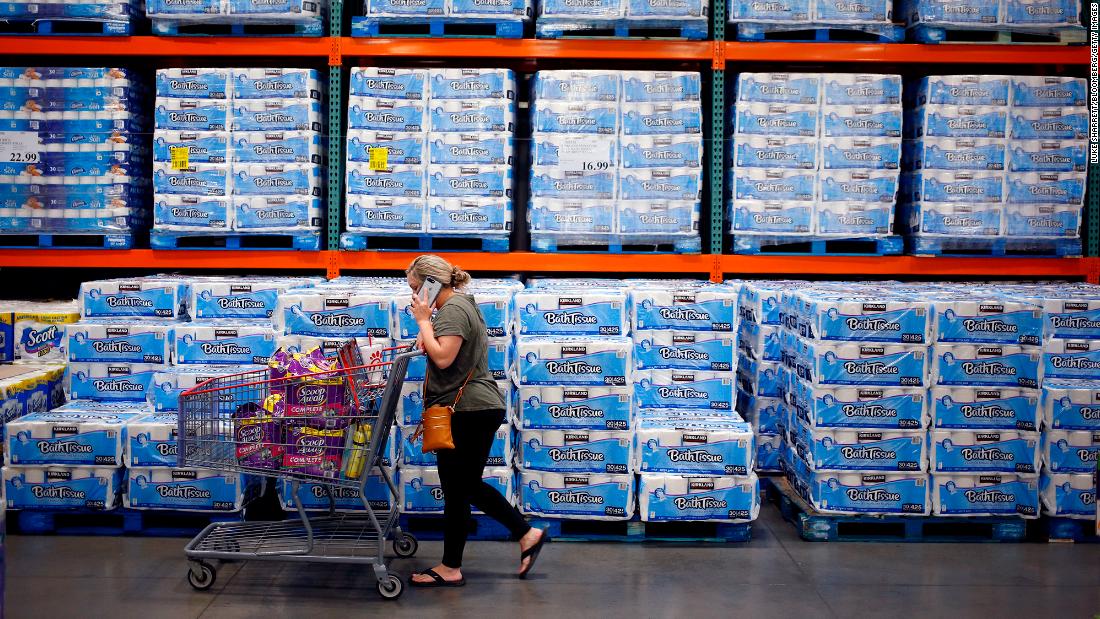How Costco Invented Kirkland Signature
It is also a shocking success.
But it has not always been so. It took a few decades for Costco to come up with its strategy in Kirkland.
If you shopped at Costco in the United States three decades ago, you’d find about 30 different Costco private label brands alongside the main staple food and household product lines.
There was simply Soda. Chelsea toilet paper. Ballantrae wine. Weight detergent. Nutra Nuggets dog food. These brands were only sold at Costco, which was called PriceCostco at the time after Price Club and Costco merged in 1993 (Costco dropped “Price” from its name four years later).
But Jim Sinegal, co-founder and CEO of Costco at the time, decided those brand names were forgettable. He sensed a major opportunity to review the company’s private label strategy.
Sinegal was inspired by a 1991 article in Forbes about the rising profit margins of major consumer goods companies of the day like General Foods, HJ Heinz and Nabisco and the emerging growth of private label brands. Consumers are “beginning to switch to house brands…The trend so far is only a trickle but it’s showing signs of growing quite rapidly,” the article said. Sinegal highlighted key passages from the article and sent it to Costco’s top merchants.
At the time, Costco was also expanding internationally, especially in the United Kingdom and Canada, where the stores’ private labels were of higher quality and more popular with shoppers than in the United States. Most US chain private labels were boring, knock-offs with white labels.
Sinegal told Costco merchants that he wanted the quality of Costco’s private labels to replicate those found overseas. And he had an unusual request – a name for each of them.
“Conventional wisdom said you had to have a different name for every class of product you had — à la Sears Roebuck with Kenmore appliances and DieHard batteries and Craftsman tools,” Sinegal said in 2019. “We got it. looked and we said, you know, we’re in so many countries and we have such a range of products that we’ll have a room full of lawyers doing nothing but trying to clear these names.”
“We liked it,” Sinegal said. “We allowed it for every country and every product category we would have. It made it simpler.”
So in 1995 all those private label names disappeared at Costco and were replaced by a new logo with a simple black, white and red design indicating Kirkland Signature.
Although Costco soon moved its headquarters to nearby Issaquah, the Kirkland name stuck: “No one could spell Issaquah, so we kept it.”
‘KS’
Kirkland Signature, known as “KS” at Costco, would soon be slapped on everything from diapers to tires to golf clubs.
Last year, Costco launched a 24-pack of 12oz Kirkland Hard Seltzer and a 750ml Prosecco Rosé. This year, Costco is adding the Kirkland Cauliflower Pizza, furnace filters and a set of sauté pans, among other items.
Costco’s private label alone is an essential part of the retailer’s positioning with customers and a way for Costco to set itself apart from its competitors.
Kirkland, which is exclusive to Costco, attracts members to the warehouses and leads them to renew their annual subscriptions of $60 and $120 each year. Perhaps more important to the company, Kirkland is helping Costco cement its image as a value store with quality products, analysts say.
“Kirkland is a surrogate brand for Costco. It really means Costco,” said Christopher Durham, president of the Retail Brands Institute, a trade group representing the private label industry. Kirkland is designed to appeal to all demographics, he said, unlike many other retailers’ private label lineup that each targets a specific segment of shoppers.
Having a single name signals consistency to shoppers—exactly Costco’s goal—and also creates cost savings for the no-frills retailer. Costco doesn’t have to pay for different packaging and can put all of its buying power with suppliers behind Kirkland. A single private label is emblematic of Costco’s broader approach to warehouse merchandise: less choice is more.
“Kirkland has a one-note strategy and he’s really good at that note,” Durham said. “It creates a reason and a point of differentiation for people to shop there.”
‘Do not mistake yourself’
Many retailers have made developing their own brands a priority in recent years. In-store products generate higher profit margins than national brand products and do not incur the same advertising costs.
Most supermarkets are adopting a similar tiered strategy, known as “good, better, best,” said Scott Mushkin, retail analyst at R5 Capital. But Costco has “positioned Kirkland as a premium brand at affordable prices.”
Other retailers are also selling a wider variety of labels in an effort to target different types of consumers for various products.
Going all out on the Kirkland label remains a risk for Costco.
“Maintaining consistent product quality, competitive pricing and availability” of Kirkland products is “essential” to retaining members at Costco, the company says in its annual filings. If Kirkland “experiences a loss of member acceptance or trust,” sales and profit margins could suffer.
“If you have 99 good things and one bad thing, people will remember the one thing. So you’re not wrong,” Costco chief financial officer Richard Galanti said. “From an opportunity perspective, Kirkland is known. It’s a brand.”


Comments are closed.